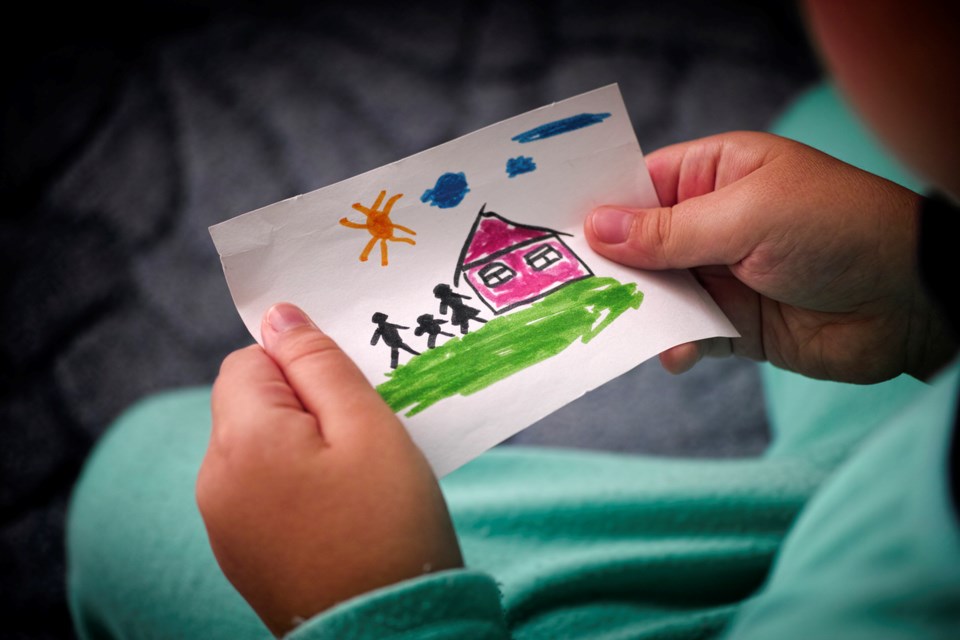When B.C.’s children’s representative Bernard Richard released a report last month about children waiting for adoption, he was surprised at the response from adoptive parents.
“It’s been very interesting,” Richard said. “We release significant reports — three, four, five a year — but this report was a five-page update on adoptions, and I received more email on this report.”
Adopting a child has been the most wonderful thing that has happened in their lives, most of those parents said.
But they also told Richard it can be a tremendous struggle with little governmental support.
“[It’s important to] support families through the adoption process — not just finding families — because it’s pretty daunting to adopt a child with special needs or who has experienced trauma,” Richard said. “Adopting a child is an important contribution to society.”
That’s definitely true.
But three years ago, Richard’s office found there were more than 1,000 kids waiting to be adopted in B.C. The same number are waiting today, despite a push and a promise by the government to get more kids into permanent homes.
In the first six months of this fiscal year, only 84 children were adopted in B.C., compared to 149 and 104 in the same period for the last two years, B.C.’s representative for children and youth reported.
The drop is “quite concerning,” Richard said in an interview. “I wonder if they’ve done what I would call the low-hanging fruit — the easier adoptions — in the first two years and now they’re running against kids who are harder to adopt.”  Â
“I feel from the information that we have that they’ve lost the focus on it and they’re really not giving it the kind of attention that they did.”Â
If more financial and transitional support was available, and prospective adoptive parents knew about it, they might be more encouraged to come forward, Richard said.
The ministry of children and families’ budget for adoption has increased from $27.7 million in 2015-16 to $31.2 million this year.
Between 2015 and 2017 the government exceeded its goals in the number of children who were adopted, which may be a factor in the low numbers for this year, according to a statement made last month by Katrine Conroy, B.C.’s minister of children and family development.
“The challenge now is that, having arranged successful adoptive placements for so many children and youth since the representative’s initial report, a significant number of those still waiting for a permanent home have complex placement needs,” Conroy said.
She said many placements get finalized in the spring, but Richard said this year’s numbers lag well behind other years at the six-month point.
The alarming proportion of children in care who are Aboriginal keeps going up, Richard said. Most recently, he heard in a presentation by the deputy minister that First Nations kids now represent 64 per cent of children in government care.
In the first six months of this year, only 16 Aboriginal children have been adopted, a drastic drop compared to 55 and 40 Aboriginal children adopted in the first halves of the previous two years, the report found.
One solution, from Richard’s perspective, might be if the ministry approved so-called “custom adoptions,” which Grand Chief Ed John pushed for recognition of in his 2016 report on Indigenous child welfare. Custom adoption is a term used to describe a cultural practice by Aboriginal people of someone who is not a child’s biological parent raising a child, while maintaining connections to the child’s birth family and community.
These types of adoption are happening within Aboriginal communities, but are not eligible for post-adoption services or financial support without ministry approval, Richard said. Legislation is in place to officially recognize such adoptions, but Richard doesn’t know of a single one that has been approved.
One way the ministry does support adoptive and birth families is through something called the Exchange Program, which allows birth family members to send cards and gifts to children who have been adopted. As long as the person sending the card or gift has approval to communicate with the child, the ministry serves as the go-between.
As far as finding stable, loving homes for the 1,000 waiting kids, Conroy promises that adoption is a “key commitment” for her ministry and says her government is fully committed to working with Indigenous families and to address the recommendations of the Truth and Reconciliation Commission.
I hope she means what she says — there are 1,000 waiting kids counting on it.
Tracy Sherlock writes about education and social issues. She can be reached at [email protected].Ěý



